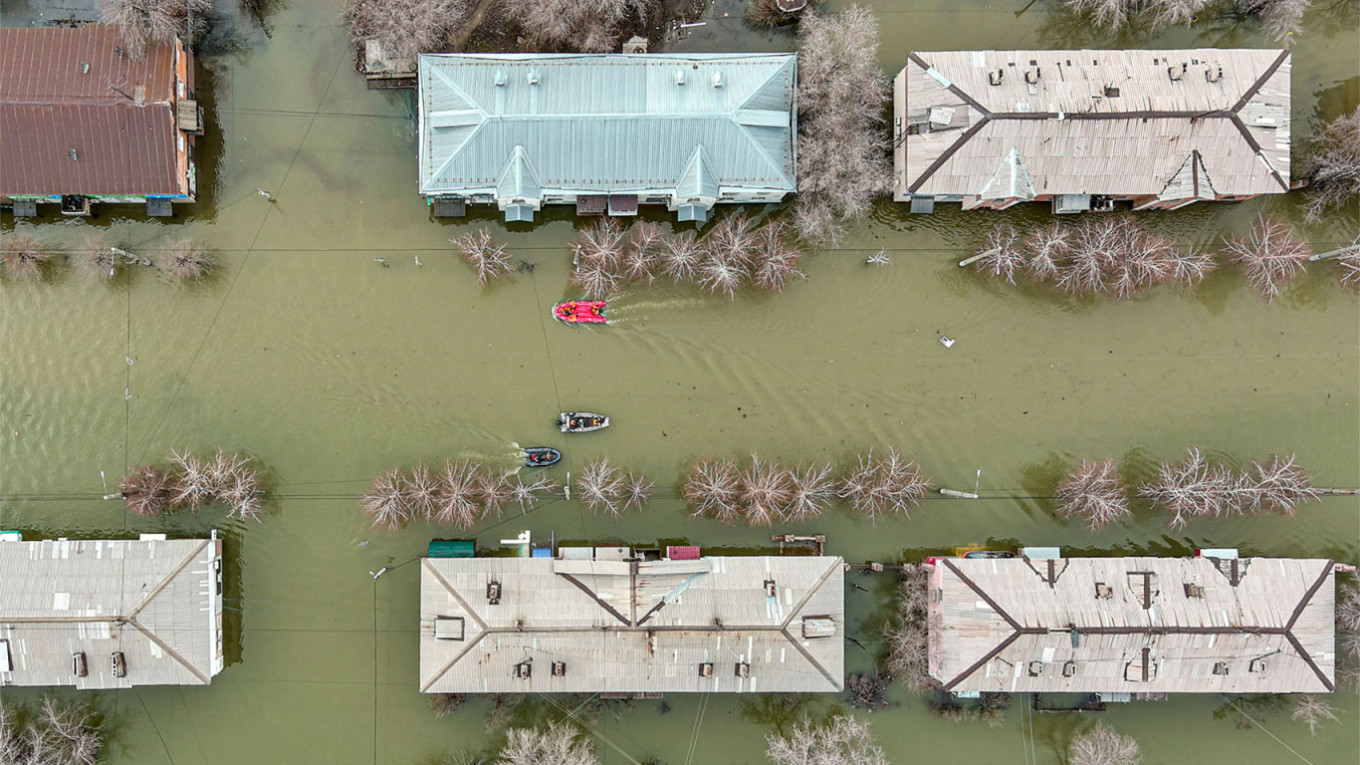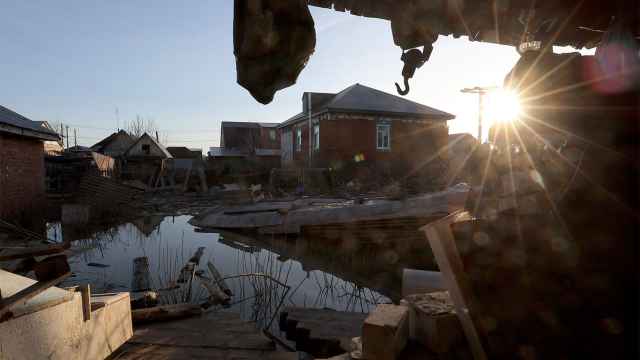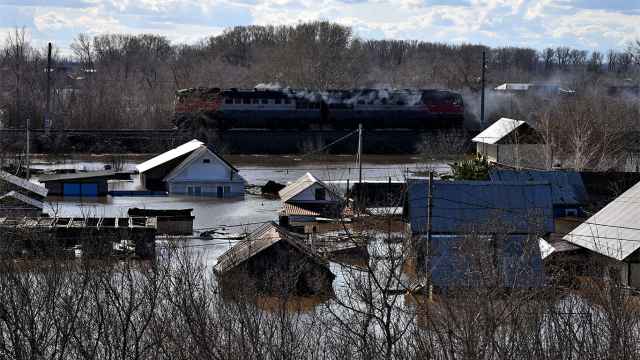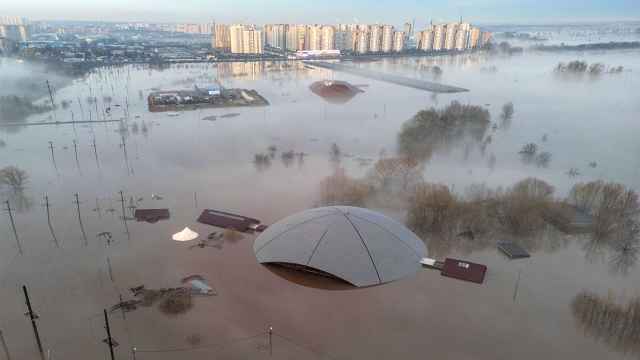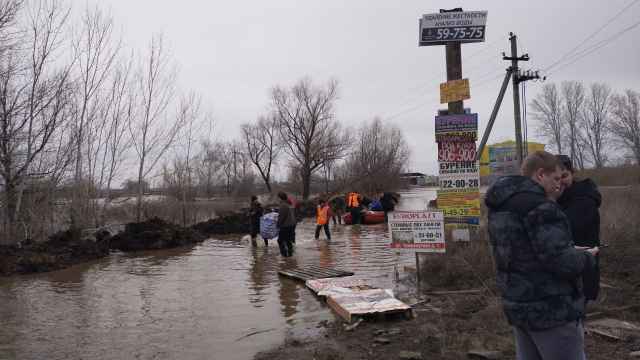ORENBURG REGION, Russia – Russia’s southern Orenburg region has been grappling with its worst flooding in decades, with 55 cities and towns fully or partially flooded and thousands evacuated in an unprecedented emergency.
Footage from the cities of Orsk and Orenburg showed entire neighborhoods submerged underwater, with volunteers and emergency workers on inflatable dinghies rescuing people and animals trapped in their homes.
Experts say the floods, which have caught the authorities off-guard and left many people to fend for themselves, are just the beginning of what is yet to come in the climate crisis.
“The scale of the flood is colossal. Many areas, many houses are underwater,” said Oleg, a resident of Orsk, the Ural Mountains city hardest hit by the disaster.
“We need to rebuild and keep rebuilding. I think it will take a lot of time, but [it will be possible] if the authorities help people,” he told The Moscow Times.
In Orenburg, the regional capital, the river embankment, several neighborhoods and a few settlements outside the city have been submerged since the end of last week.
Despite days of round-the-clock rescue efforts, there is still no end in sight to the crisis. Hydrologists expect the Ural River to rise even higher in Orenburg on Wednesday, and the Kremlin said that the neighboring Kurgan and Tyumen regions face “difficult days ahead.”
Russia on Sunday declared a federal state of emergency in the Orenburg region, a move that allows federal forces to get involved in efforts to combat the flooding.
According to a document obtained by The Moscow Times' Russian service, the Emergency Situations Ministry had known about the impending severe flooding in the Orenburg region a month prior but failed to take preventive steps to mitigate the damage.

Multiple failures
On the streets of Orsk, sirens can be heard wailing and fire trucks are on constant patrol.
As evacuation continues day and night, assisted by military and volunteers who arrived at the scene, residents from flooded zones are placed in temporary accommodation centers.
According to authorities, almost 7,000 houses were submerged in Orsk over three days and about 2,500 people, including 704 children, were evacuated.
Russia’s Construction Ministry estimates that the total damages to homes could exceed 21 billion rubles ($226 million).
The flooding is believed to have been triggered by intense snowmelt and rainfall amid abnormally warm spring weather that caused the Ural River to rise and breach a protective dam in at least three places.
The first major burst late Friday night submerged the city’s Old Town district, with only the rooftops of single-story houses visible above the water.
On Saturday, a second dam failure triggered a fresh round of evacuations in Nikel, another Orsk district. It remains unclear if the dam collapsed or if the river simply overflowed.
The dam was breached a third time on Monday near the Lesotorgovy neighborhood, which was evacuated in advance.
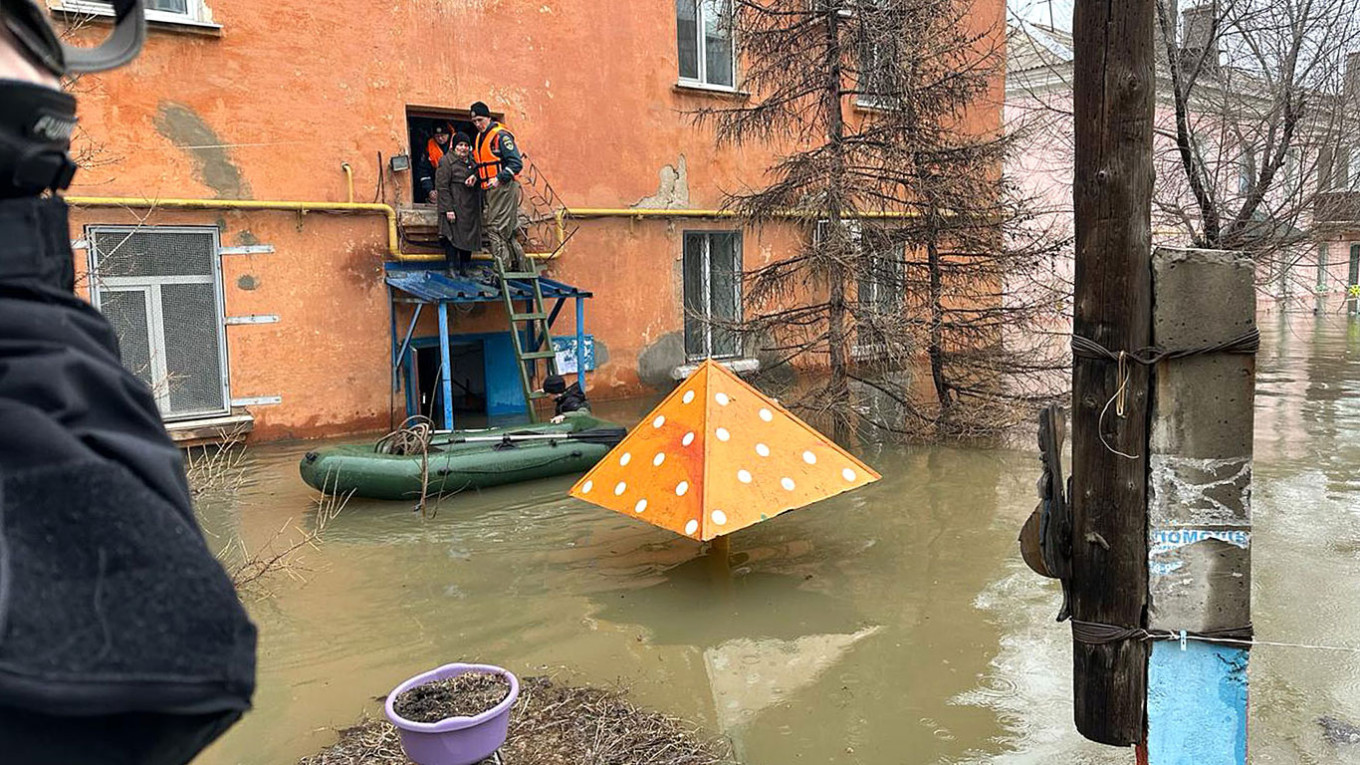
Emergency Situations Minister Alexander Kurenkov visited Orsk after a federal-level emergency was announced. In a statement aired on national television, he claimed that the authorities had announced the evacuation of Orsk several days before the dam breach and accused residents of ignoring this message.
This statement angered locals, who said they were not notified of the evacuation in advance.
Two days before the dam burst, Orsk Mayor Vasily Kozupitsa assured residents in a since-deleted VKontakte post that he had inspected the dam and that there was no cause for concern. The Moscow Times took a screenshot of the post.
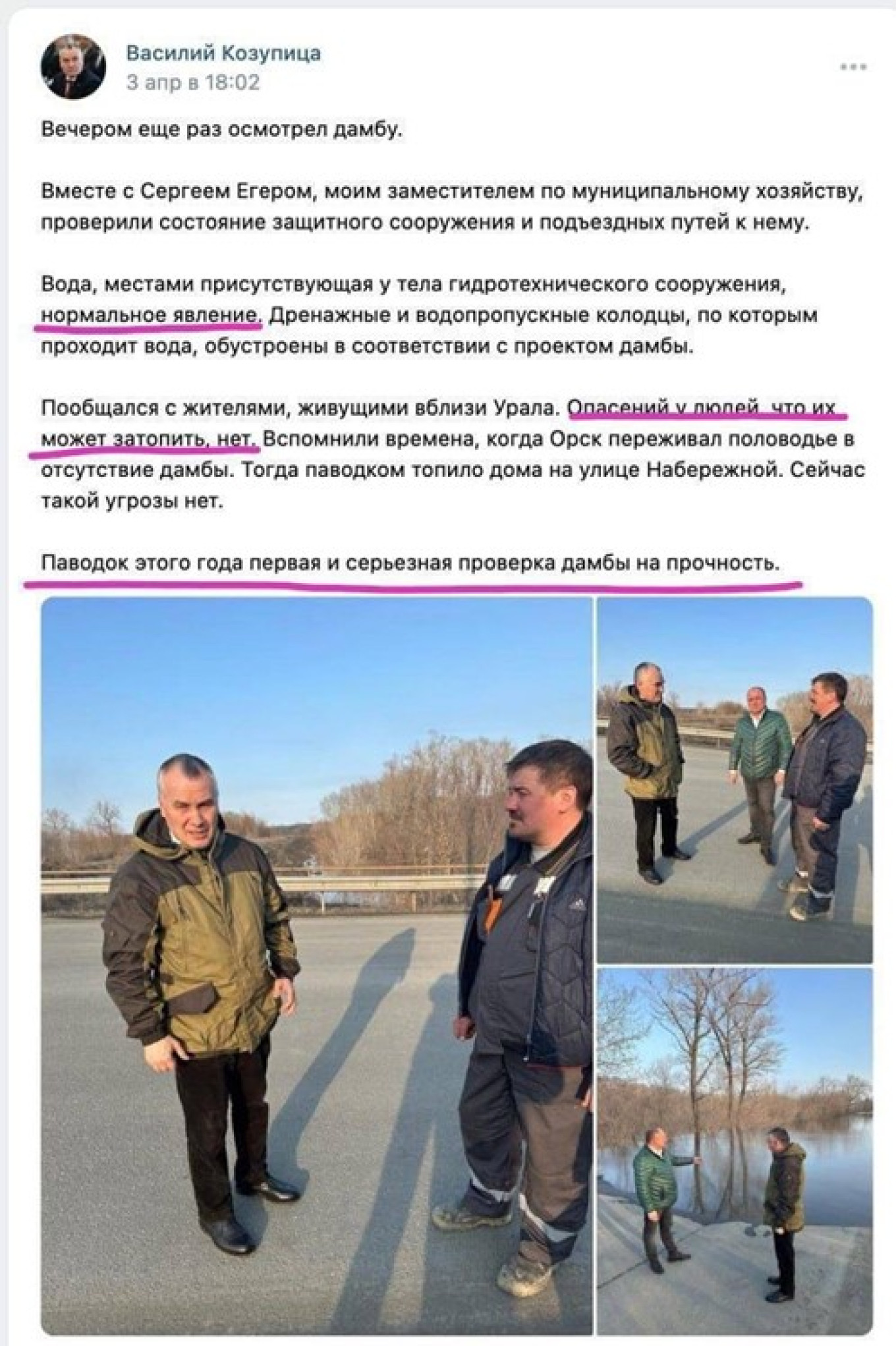
On Saturday, Orenburg region Governor Denis Pasler announced a one-time payment of 20,000 rubles ($215) to each individual and a payment of up to 100,000 rubles ($1,077) to those who lost property.
However, the amount of compensation and the authorities’ handling of the evacuation left many Orsk residents underwhelmed.
On Monday, the third day after the initial dam breach, over 100 people gathered at the Orsk administration building to demand Kozupitsa’s resignation.
“Why should we now restore homes at our own expense? Accept the fact that you … as the one in charge, are responsible for this situation. Say: ‘Yes, forgive us, we didn't take care, we stole.’ Let’s speak openly,” said one of the protesters.
“Everyone knows how they stole from this dam,” she added.
In response to residents’ outrage, Pasler promised to bring all those responsible to justice and build a new dam, while Kozupitsa announced that all flood victims would receive a 100,000-ruble payment.
“This is not compensation for lost property, but rather immediate support to at least partially recover from the calamity,” Kozupitsa said Monday on the Telegram messaging app.
Russia’s Investigative Committee has opened a criminal probe into construction safety violations and negligence that may have caused the dam to fail.
There is still no official explanation for what caused the dam to break. One version of events suggested that the protective dam in Orsk’s Old Town was only designed to hold back a water level of 5.5 meters, but the river rose to a critical 9.6 meters on Friday night.
The contractor behind the dam’s construction said that rodents burrowing a hole in the dam may have been to blame and ruled out any design or engineering errors.
'Waist-deep'
The regional capital of Orenburg, a city of about 560,000 people, has not seen water levels this high since 1942, according to Mayor Sergei Salmin.
“The water came on the night of April 5-6, literally in two hours. Early in the morning, it was ankle-deep, and then within two to three hours, it was waist-deep,” Igor, the owner of a dacha in the flooded area, told The Moscow Times.
By then, the authorities had closed the roads to his neighborhood and were not letting anyone into the flood zone. Igor managed to salvage a few of his personal belongings.
“When it became clear that the situation was serious, we managed to get our small appliances out, but large items like the stove, refrigerator, electric saw and lawnmower could not be saved,” he said.
The flooding also struck a house belonging to Martin Gorton, a British citizen living in a cottage community in Orenburg. He described on his YouTube channel how he used a boat to retrieve belongings from his home.
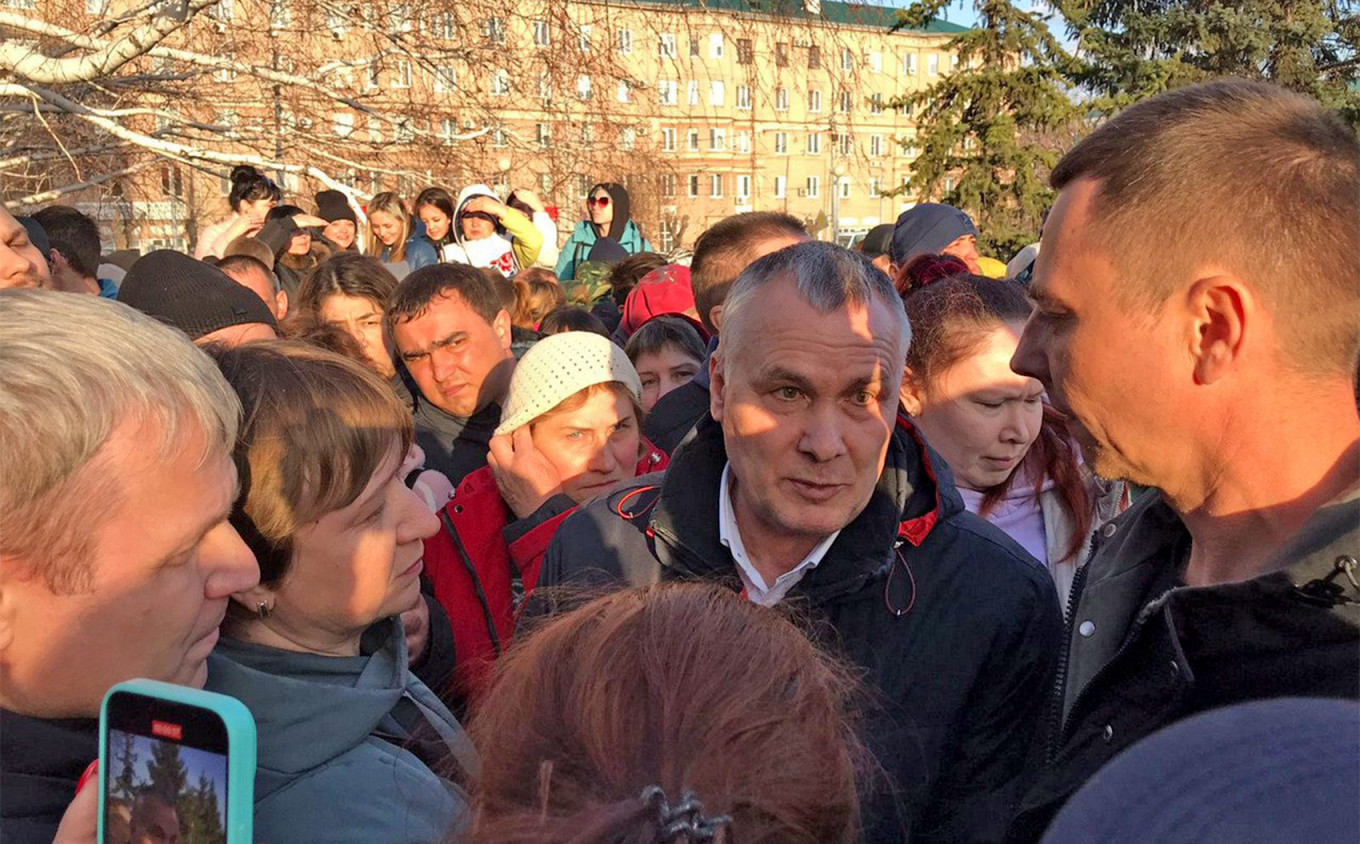
For days, emergency services, local administrations, concerned citizens and volunteers have been assisting in evacuation efforts, rescuing people and animals.
However, help has not reached all flooded areas, and people complain of being left to deal with the disaster on their own.
“People sailed to their homes on whatever they could find: boats, motorboats and catamarans,” Anastasia, another resident, told The Moscow Times. “There was so much water, it felt like it was a reservoir, not a river — you couldn't see an end or a shore. You sail into nowhere: there's no emergency services, no one on duty anywhere.”
She added that she had encountered people with pets who chose not to evacuate because they feared looters would break into their homes.
“In Dubki [gardeners' co-operative], houses are submerged to the roofs. In Dubovoy Ples [cottage settlement], they are halfway underwater,” Anastasia said.
“Saunas, gazebos, outdoor toilets and building materials are floating in the water. It's devastating to see.”
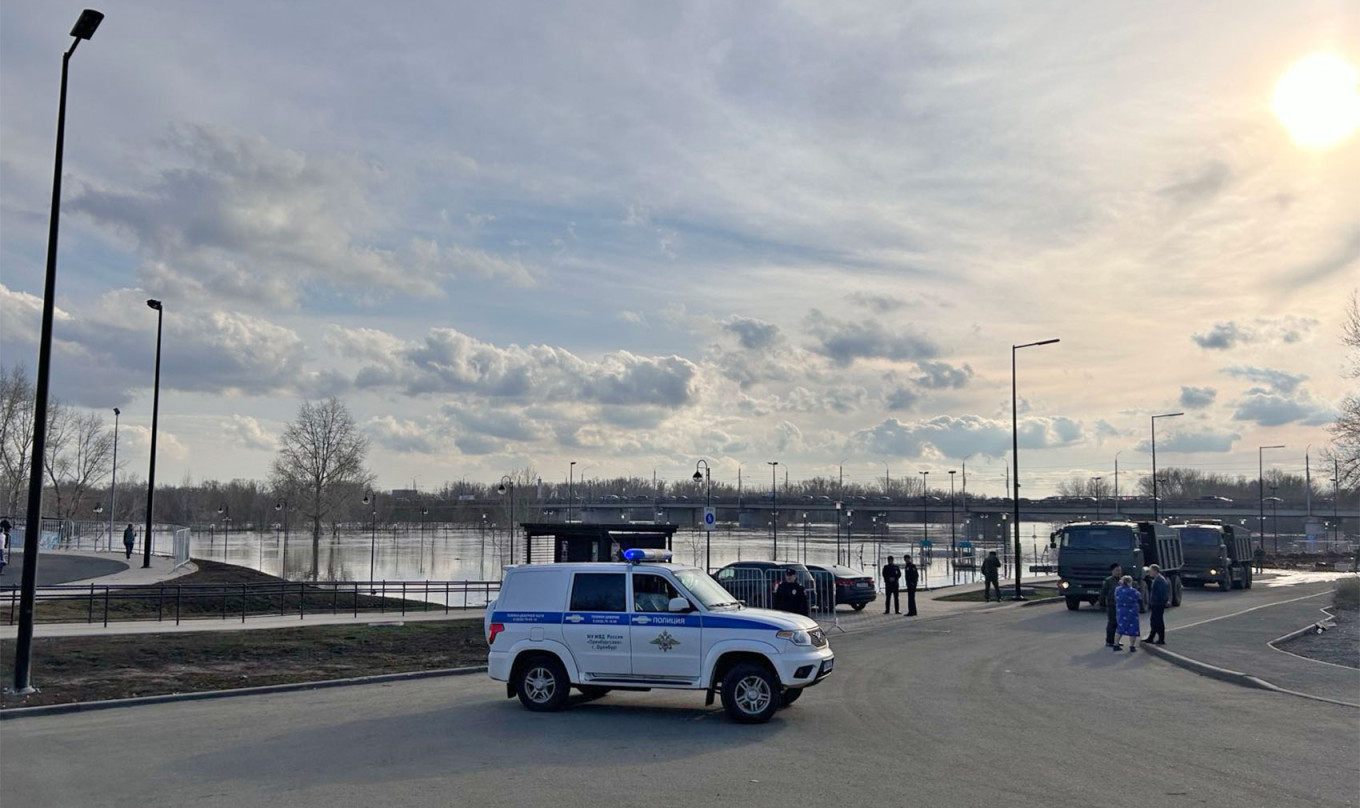
Mayor Salmin said that he did not rule out the possibility of the Ural water intake facility — which supplies water to one-third of the city — shutting down in a critical situation. He also urged the residents not to ignore the evacuation requests.
On Wednesday, Orenburg authorities called on residents in affected areas to “urgently” leave their homes after the Ural River exceeded dangerous levels on Tuesday.
New reality
The disaster has also impacted other areas in the Orenburg region, with 304 houses flooded and 127 residents evacuated in the town of Buzuluk.
In the Buzuluk district, the water washed away a bridge over the Borovka River, which connected settlements in the Buzuluksky Bor National Park.
According to local resident Anna, the water is quickly rising in Buzuluk.
“Yesterday, this dam was overflowing, meaning it cannot handle the water,” she said.
“The water has also reached the [pumping] station. This is likely the highest water level since its construction in 1905. Because the station was built at the highest point to avoid flooding.”
In the town of Novotroitsk some 270 kilometers east of Orenburg, several streets were evacuated starting Monday after water overflowed from a local dam built in 1957.
Meteorologists predict that water levels in the Orenburg region will not stabilize until late April.
While internet users and celebrities raise funds for food, clothing and hygiene products for the flood victims, experts caution that the disaster in the Orenburg region is just a preview of what is to come as climate change worsens.
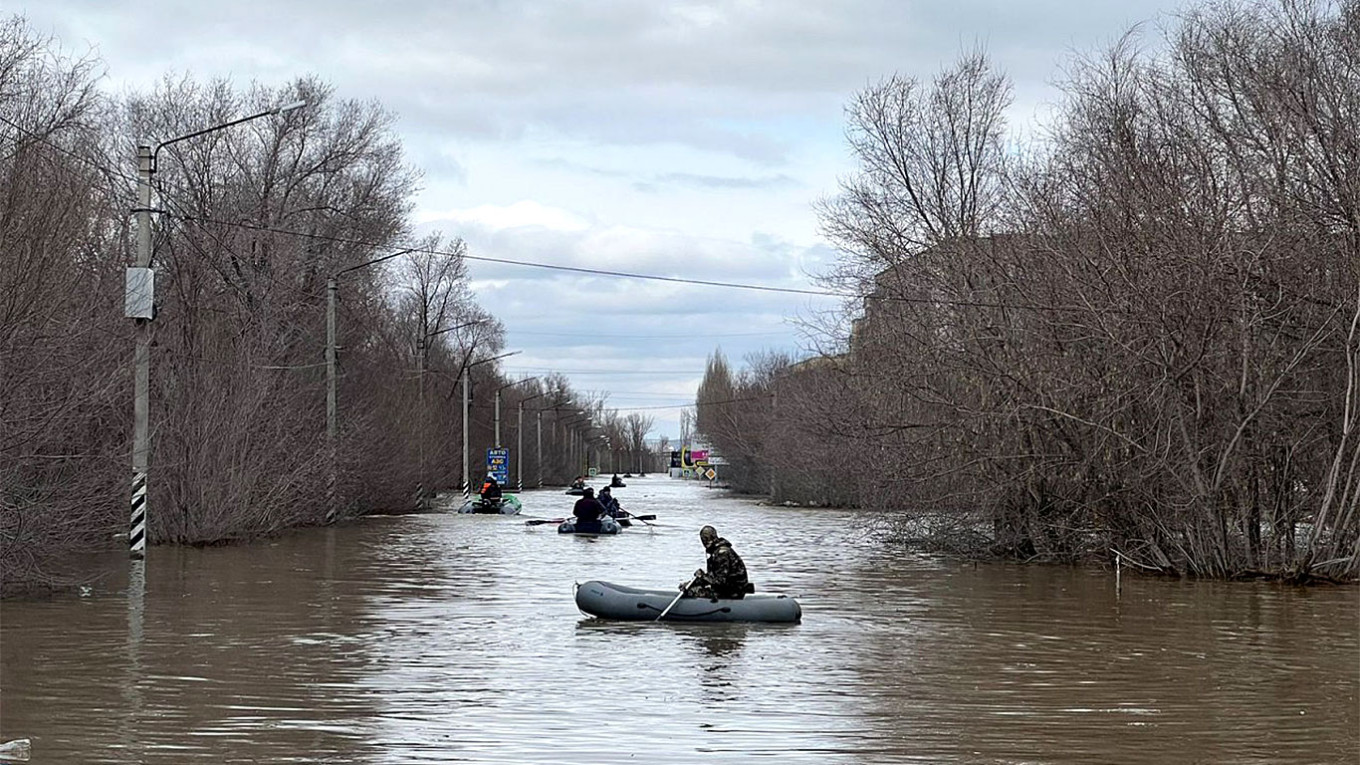
The disaster in Orsk is a “classic illustration” of global climate change fueling more frequent and destructive extreme weather events including floods, a Russian climate expert told The Moscow Times.
The expert requested anonymity due to their affiliation with a group targeted by the Russian authorities.
“Undoubtedly, it is very difficult to detach from the dramatic events unfolding in the Orenburg region, but one way or another ... the background of what has happened is [climate change], which is currently underestimated both in Russia and globally,” the expert said.
Roshydromet, Russia’s state meteorology and environmental monitoring service, warned in a 2022 report that Russia’s Volga Federal District, which includes the Orenburg region, is at risk of dangerous flooding due to increased river runoff during spring.
“Scientists are sounding the alarm, but they are sounding it inside their own bubble. And those who should be making decisions in climate adaptation do not hear them,” the anonymous climate expert said.
They added that although the collapsed dam in Orsk could withstand flooding 20 or 40 years ago, it was not built with the effects of climate change in mind.
“We need a new climate policy that incorporates entirely new approaches to infrastructure and population protection issues. We are living in new conditions — the conditions of a climate crisis,” the expert said.
A Message from The Moscow Times:
Dear readers,
We are facing unprecedented challenges. Russia's Prosecutor General's Office has designated The Moscow Times as an "undesirable" organization, criminalizing our work and putting our staff at risk of prosecution. This follows our earlier unjust labeling as a "foreign agent."
These actions are direct attempts to silence independent journalism in Russia. The authorities claim our work "discredits the decisions of the Russian leadership." We see things differently: we strive to provide accurate, unbiased reporting on Russia.
We, the journalists of The Moscow Times, refuse to be silenced. But to continue our work, we need your help.
Your support, no matter how small, makes a world of difference. If you can, please support us monthly starting from just $2. It's quick to set up, and every contribution makes a significant impact.
By supporting The Moscow Times, you're defending open, independent journalism in the face of repression. Thank you for standing with us.
Remind me later.



